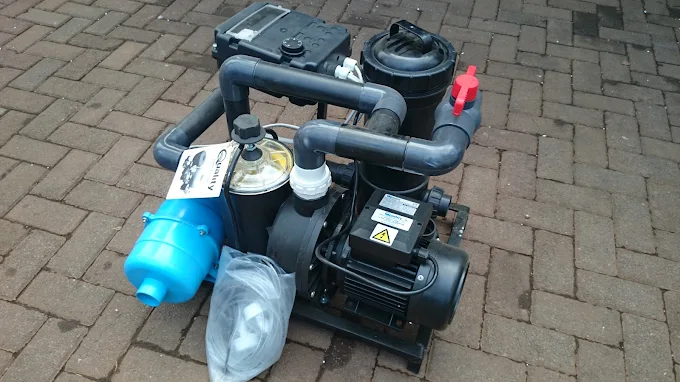
In the challenging environment of marine applications, choosing the right materials is crucial for durability, safety, and long-term performance. One material that stands out in this demanding sector is Cupro Nickel Fasteners. Known for their exceptional resistance to corrosion and excellent mechanical properties, these fasteners have become the preferred choice for many engineers, manufacturers, and marine professionals.
In this comprehensive article, we’ll explore the key benefits of using Cupro Nickel Fasteners in marine settings, the science behind their performance, and why they often outperform other materials in harsh, saltwater environments.
What Are Cupro Nickel Fasteners?
Before diving into the benefits, it’s important to understand what Cupro Nickel Fasteners are.
Cupro nickel is an alloy primarily made of copper and nickel, sometimes with small amounts of iron and manganese. The alloy is highly valued for its resistance to seawater corrosion and biofouling, making it especially suitable for marine and offshore applications. Fasteners made from this alloy include bolts, nuts, screws, and washers designed to withstand the tough conditions typical of marine environments.
Why Marine Applications Demand Specialized Fasteners
Marine environments are uniquely harsh for metals. Constant exposure to saltwater, fluctuating temperatures, and high humidity accelerates corrosion. The presence of microorganisms can also contribute to biofouling, further degrading materials.
Using standard fasteners in such conditions often leads to premature failure, safety hazards, and increased maintenance costs. This is why specialized materials like Cupro Nickel Fasteners are essential in:
- Shipbuilding and repair
- Offshore oil and gas platforms
- Marine infrastructure such as docks and bridges
- Subsea pipelines and equipment
Key Benefits of Using Cupro Nickel Fasteners in Marine Applications
1. Superior Corrosion Resistance
One of the most critical advantages of Cupro Nickel Fasteners is their outstanding resistance to corrosion, especially in saltwater. The combination of copper and nickel creates a protective oxide layer on the surface of the fastener, preventing rust and degradation.
This corrosion resistance means less frequent replacement, reducing downtime and maintenance costs. It also ensures the structural integrity of marine vessels and infrastructure remains intact over time.
2. Excellent Strength and Durability
Despite their resistance to corrosion, Cupro Nickel Fasteners do not compromise on strength. These fasteners provide high tensile strength and mechanical durability, which are necessary for withstanding dynamic marine forces such as wave impacts, vibrations, and loads.
This makes them ideal for securing critical components in ships, offshore rigs, and other marine constructions where failure is not an option.
3. Resistance to Biofouling and Marine Growth
Biofouling, the accumulation of marine organisms like barnacles and algae, can severely affect marine equipment. The copper content in Cupro Nickel Fasteners naturally inhibits the growth of these organisms, helping maintain smooth surfaces and preventing operational issues.
This natural antifouling property reduces the need for chemical coatings and frequent cleaning, saving time and money.
4. Excellent Thermal and Electrical Conductivity
Marine applications often require materials that can withstand thermal cycling and conduct electricity where necessary. Cupro Nickel Fasteners possess good thermal conductivity, which helps dissipate heat efficiently.
Moreover, their electrical conductivity ensures compatibility with other metallic parts and reduces the risk of galvanic corrosion when used with dissimilar metals.
5. Resistance to Stress Corrosion Cracking
Stress corrosion cracking (SCC) is a common problem in marine environments where materials are exposed to tensile stress and corrosive conditions. Cupro Nickel Fasteners show excellent resistance to SCC, making them more reliable under high-stress and fluctuating environmental conditions.
This characteristic enhances safety and longevity in marine applications.
Applications of Cupro Nickel Fasteners in Marine Industry
Understanding where Cupro Nickel Fasteners are used highlights their versatility and value:
- Shipbuilding: From hulls to engine parts, these fasteners ensure components stay secure without corrosion-related failures.
- Offshore Platforms: They help maintain the integrity of structures exposed to constant seawater and harsh weather.
- Subsea Equipment: Used in pipelines, valves, and subsea housings where reliability and corrosion resistance are critical.
- Marine Infrastructure: Docks, piers, and bridges benefit from the long lifespan of cupro nickel fasteners, reducing maintenance cycles.
Comparing Cupro Nickel Fasteners with Other Materials
It’s useful to compare Cupro Nickel Fasteners with other commonly used marine fasteners like stainless steel and galvanized steel.
| Property | Cupro Nickel Fasteners | Stainless Steel Fasteners | Galvanized Steel Fasteners |
|---|---|---|---|
| Corrosion Resistance | Excellent in seawater | Good, but prone to pitting | Moderate, coating can wear off |
| Strength | High | High | Moderate |
| Biofouling Resistance | Natural antifouling | Minimal | None |
| Maintenance Required | Low | Moderate | High |
| Cost | Higher upfront | Moderate | Lower upfront |
While Cupro Nickel Fasteners might have a higher initial cost, their durability and low maintenance make them more cost-effective over the lifespan of marine projects.
Installation and Maintenance Tips for Cupro Nickel Fasteners
Even the best fasteners require proper installation and care to maximize their benefits:
- Use appropriate torque settings to avoid over-tightening, which could damage the fastener or the alloy structure.
- Avoid mixing Cupro Nickel Fasteners with incompatible metals that might cause galvanic corrosion.
- Inspect fasteners periodically for signs of wear or damage, especially in critical applications.
- Clean fasteners with fresh water after extended exposure to saltwater to remove surface deposits.
Environmental and Sustainability Considerations
As environmental regulations grow stricter, the marine industry is moving towards sustainable and eco-friendly materials. Cupro Nickel Fasteners contribute positively by reducing chemical antifouling agents due to their natural biofouling resistance. Additionally, cupro nickel alloys are recyclable, aligning with sustainability goals.
Conclusion
Choosing the right fasteners can be the difference between longevity and premature failure in marine environments. The unique combination of properties in Cupro Nickel Fasteners — including superior corrosion resistance, mechanical strength, and biofouling protection — make them an ideal choice for marine applications.
Investing in these fasteners ensures not only the safety and reliability of marine equipment but also long-term cost savings through reduced maintenance and replacement frequency. For shipbuilders, offshore operators, and marine engineers, Cupro Nickel Fasteners are a proven solution that withstands the tests of nature and time.




